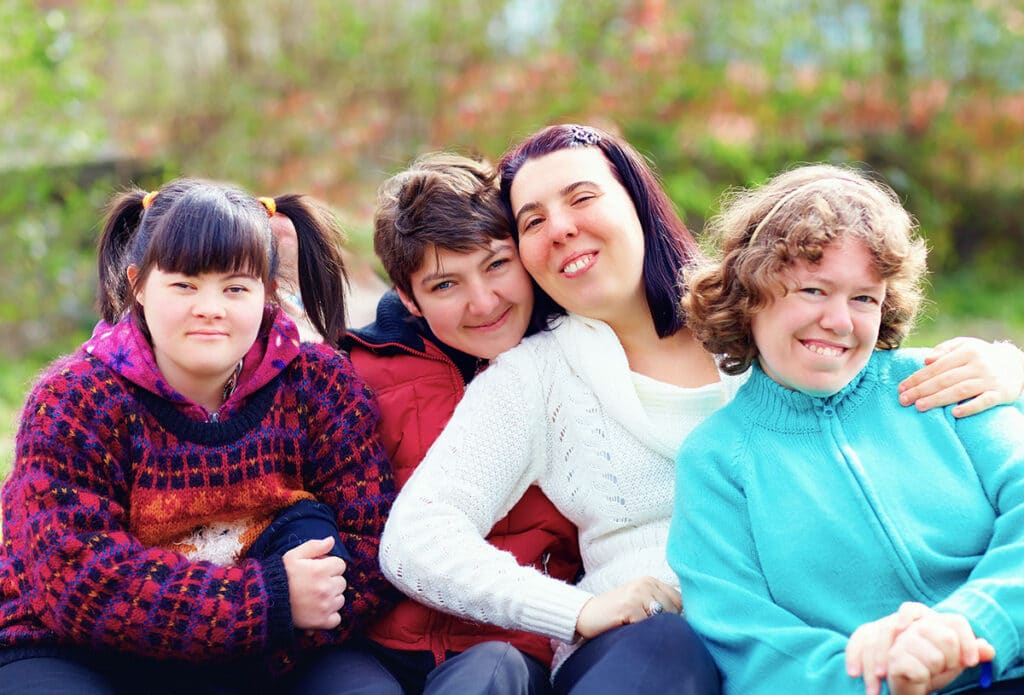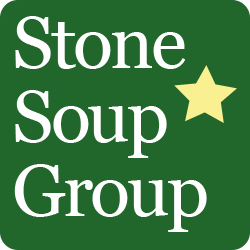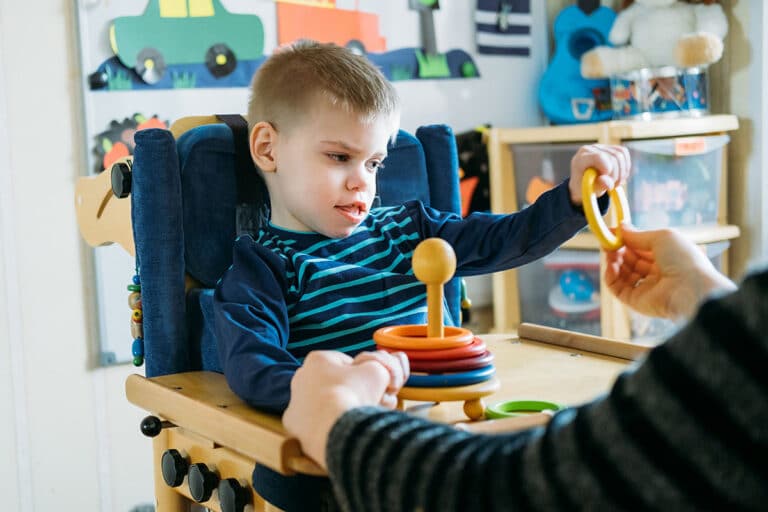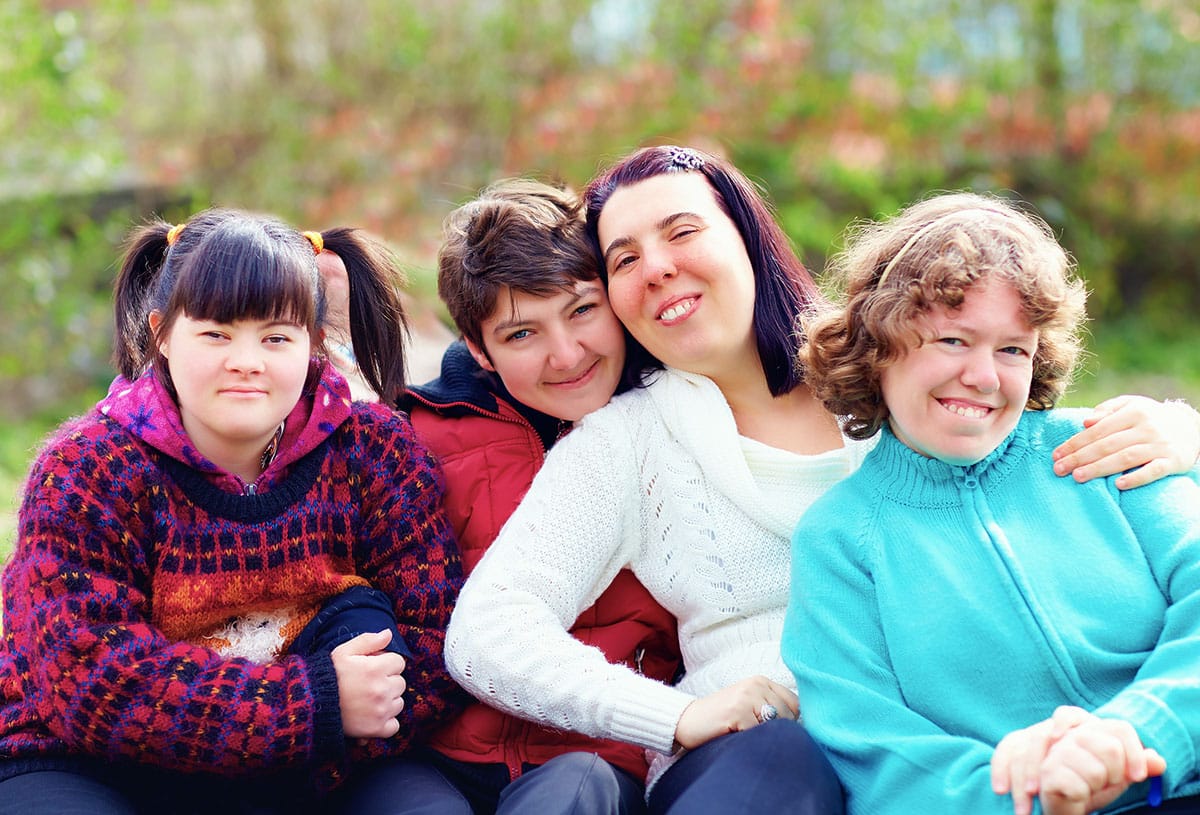This guide is packed with information, tips, and contacts for various issues facing families caring for children with special needs. It includes information and resources on education, medical needs, transitions, and financial resources.
Moving from one life stage to another can be exciting as well as challenging for a family of a child with special needs. Luckily, there are programs to help your family find smooth transitions. Learn More
This notebook will help you stay organized and will be your “go to” resource during medical appointments and school meetings. It has a place for health and educational records, business cards, progress notes and keepsakes.
Contact Stone Soup Group 907-561-3701 to request your Paper Trail Notebook.
We took the 145 page Department of Education Handbook and narrowed it down to 12 easy to digest pages. Get an understanding of Alaska’s Special Education process and become familiar with your family’s rights.
Download a PDF version of the Alaskan Special Education Handbook
Genetic Education Materials for School Success (GEMSS) provides a family-friendly starting point to help family members learn more about genetic conditions and offers ideas to encourage inclusion and participation in the classroom. GEMSS shares condition-specific information and resources for multiple audiences, including families, professionals, healthcare providers, and schools. Contributors to GEMSS come from clinical, public health, advocacy, and academic settings. All content has been vetted by clinical and family experts.
It is important to know that a medical diagnosis of autism will not guarantee educational eligibility at school, just like a school-based assessment will not guarantee insurance coverage for therapeutic services.
The purpose of educational assessments is to determine eligibility for special education services available to support a child’s needs within the school setting. When a child is given this eligibility it is because the child will benefit from having special services to help with their academic progress. An IEP (individualized education program) team will determine what specific services your child will need throughout the school day.
Watch this video to learn more about educational assessments.
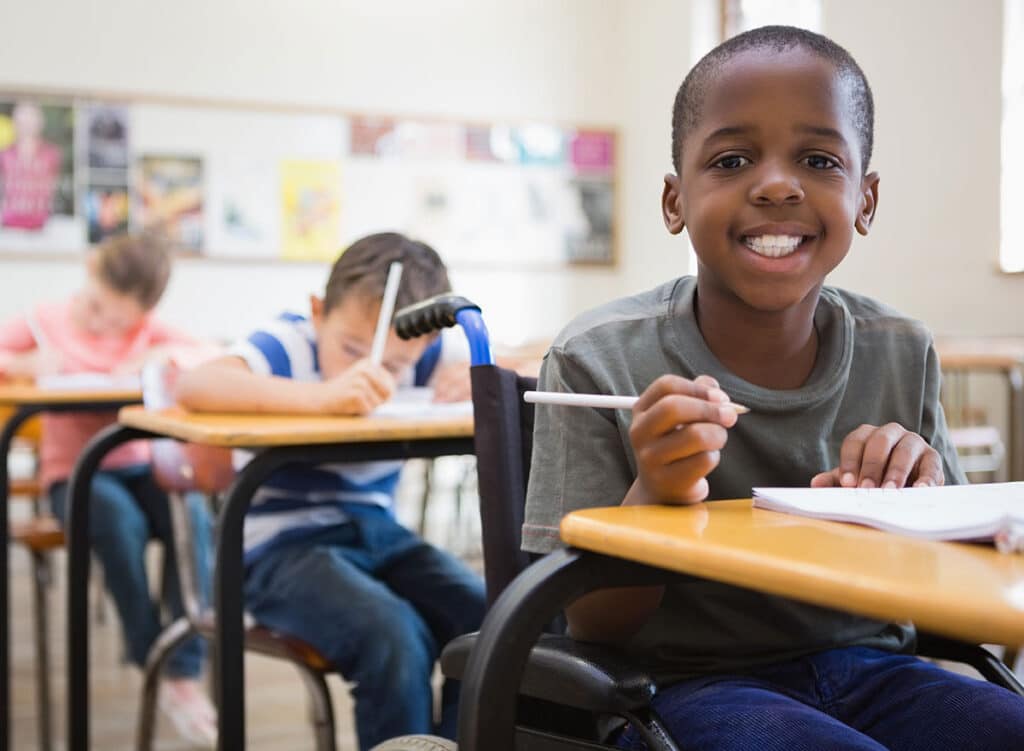
There are specialized services, resources, and agencies to support your family as your child grows and develops and their healthcare needs change. Learn More
Development doesn’t need to stop outside the home. Along with health care, there are supports and services to help you provide a nurturing and stimulating environment for your child. Children enjoy learning, and it’s amazing how much you may learn and grow with them. Your child may be eligible to receive expert attention from experienced professionals.
Developmental screening
Developmental screening is a standardized set of questions about different aspects of a child’s abilities including language, movement, thinking, behavior and emotions. The American Academy of Pediatrics recommends every child be screened at 9, 18 and 24-30 months or whenever a caregiver has a concern. Going through the process of a developmental screen can be both fun and educational. Many tools use activities children already engage in or view as games to assess milestones. When done with a caregiver, it can give ideas for new activities to try with your child as well as help you to understand the types of skills your child may be developing at each new stage.
To take a developmental screening with your child, visit Help me Grow AK
Learn the Signs. Act Early.
From birth to 5 years, your child should reach milestones in how she or he plays, learns, speaks, acts and moves. Track your child’s development and act early if you have a concern. Learn more
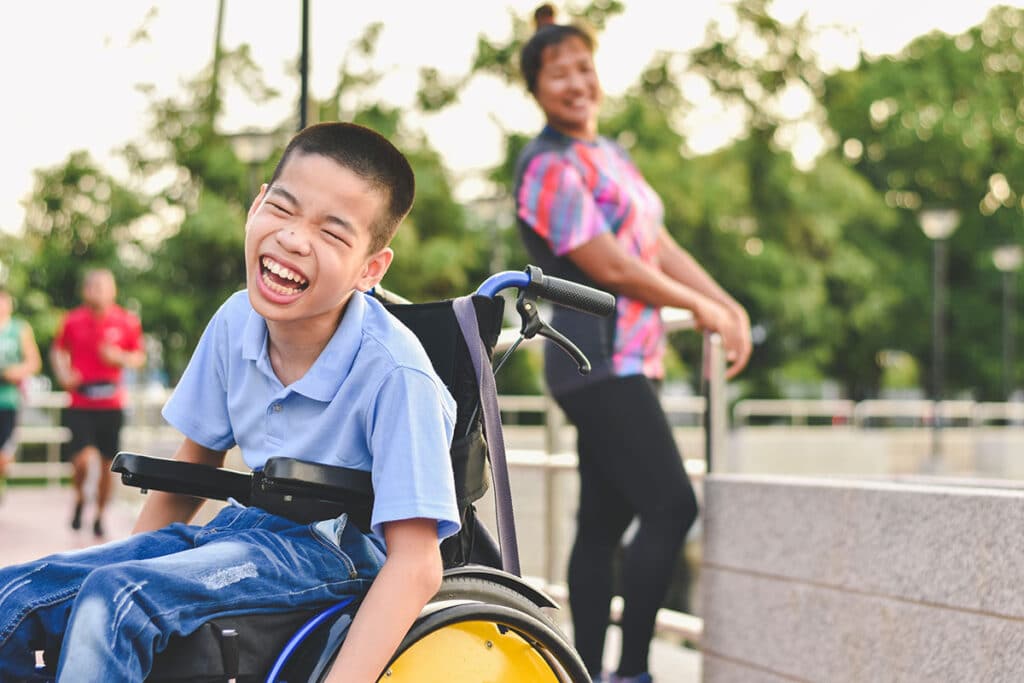
Transitions can be defined by stages of life or moments in a day, even by the people we meet, the skills we learn, and the places we live. Planning for adulthood is a process and a journey, and it is never too early or too late to start. This section outlines the supports and resources related to transitions for individuals with developmental disabilities. Additionally, Stone Soup Group frequently hosts informational classes and events related to transitions, so be sure to check out the calendar for the schedule and to register to attend.
Governor’s Council on Disabilities and Special Education developed the Alaska Transition Handbook: Pathway to Employment and Adulthood for parents, guardians, students, and caregivers. It is a guide to help navigate many possible options to obtain employment, a resource to help understand the available services to successfully achieve employment, and a timeline to assist focused planning of transition-related activities in middle and high school.
Alaska Disability Benefits 101 provides tools and information on health coverage, benefits, and employment – allowing individuals with disabilities to plan ahead and learn how work and benefits go together.
ABLE Plans are tax-advantaged savings accounts for individuals with disabilities and their families. The beneficiary of the account is the account owner, and income earned by the accounts will not be taxed. The Alaska ABLE Plan helps individuals with disabilities save while preserving their SSI and Medicaid.
The Alaska Department of Vocational Rehabilitation (DVR) helps eligible job seekers set a job goal, choose the services they need, and select the providers for those services. The services depend on the individual’s needs, circumstances, and job goals. DVR counselors also support many high schools and districts throughout the state. DVR offers the following programs and services:
- Assistive Technology Program improves access to and acquisition of assistive technology (AT) for individuals with disabilities of all ages.
- Business Enterprise Program provides employment opportunities to people who experience blindness and other severe disabilities by establishing businesses such as food service, gift shops, and vending machines, which these individuals manage.
- Disability Determination Services is contracted to the Social Security Administration (SSA) to determine medical eligibility for disability benefits.
- Vocational Rehabilitation Program provides services to help individuals with disabilities prepare for, get, and keep good jobs.
Tribal Vocational Rehabilitation (TVR) helps Alaska Natives and American Indians with disabilities get jobs and learn the skills needed to work. Services include guidance and counseling, job placement, medical exams, surgery, psychiatry, training, transportation, and assistive devices such as hearing aids and wheelchairs. The program offered regionally throughout Alaska, can also help college and vocational students, spark small business development, and create supported employment.
Job Training Programs are available to help Alaskans to qualify and obtain high-demand jobs that lead to economic self-sufficiency. Training services are available to eligible youth and adults through the Alaska Job Center Network (AJCN) and selected training providers and partners across the state. A professional job center staff conducts an assessment and helps develop an Individual Training Account that allows individuals to choose appropriate training programs.
Supported Employment is a model of employment that provides individuals with disabilities or mental health conditions with the necessary support to obtain and maintain competitive employment in the community. The approach is based on the principle of individualization, which means that services and support are tailored to the specific needs and strengths of the individual. This can include job coaching, vocational rehabilitation, career counseling, and other assistance necessary to help the individual succeed in the workplace.
The Employment First Bill directs all state agencies to focus on employment in the general workforce as the first and preferred outcome for all working-age Alaskans with disabilities. Employment First is a national movement to promote employment in the general workforce as the preferred option for individuals with disabilities receiving assistance from publicly funded systems. Alaska state agencies work together to support disability resource coordinators at job centers, public school transition services, vocational rehabilitation, and more.
The Alaska WIPA Project, offered by UAA’s Center for Human Development (CHD), assists beneficiaries working at wage employment, self-employment, or with a pending job offer. Assistance is offered to help understand the various work incentive programs that might be available and provide advice about how to manage one’s benefits during the transition to paid employment. The WIPA Project provides both initial and follow-along assistance to beneficiaries. Benefits Counseling and a written Benefits Summary Analysis (BSA) are provided free of charge.
The Micro Enterprise Fund, managed by CHD, strives to increase access to Micro Enterprise and self-employment opportunities for individuals with disabilities. Grant funds may be used for starting a new business, expanding a current business, or acquiring an existing one.
CHD’s TAPESTRY Postsecondary Transition Program provides students with a disability ages 16 to 22 a college experience to develop their self-advocacy and social skills and engage in career exploration that leads to employment in a career field or enrollment in a postsecondary educational program.
Project SEARCH is a High School Transition Program providing real-life work experience as interns to help youth with disabilities successfully transition from school to adulthood. It is meant to serve as a student’s last year in high school. Interns learn relevant, marketable skills while immersed in the business, and those businesses are active partners participating without subsidies. The program has several rotations through unpaid internships with continual feedback to develop transferable, high-quality employability skills. Alaska Traditional Transitions is a curriculum project to improve the quality of life, connection to the local community and increase work-related skills for teens and young adults with disabilities who live in rural Alaska. It provides tools teachers can use to incorporate traditional values and knowledge into Individual Education Plans (IEPs) and Transition Plans.
Guardianship is a legal arrangement where the court appoints a person or institution as a guardian to make decisions for an incapacitated person or a minor child about housing, medical care, legal issues, and services.
Conservatorship is a legal arrangement where the court appoints a person or institution as a conservator to handle the financial affairs of another person. The conservator collects and deposits all income, pays all debts and bills, secures all assets, and manages taxes and insurance.
Supported Decision-Making Agreements are written agreements that give individuals with disabilities the help they need to make life choices. These choices could be about where to live, what to do during the day, how to spend money, or when to see a doctor. Supported Decision-Making Agreements can help a person get the support they want, like getting information in words they can understand.
Challenge Alaska offers individuals with disabilities adaptive sports, therapeutic recreation, and education opportunities. Challenge Alaska’s mission promotes education, social development and involvement, employment, and the goal of independence.
Special Olympics Alaska provides year-round sports training and athletic competition in various Olympic-type sports for youth and adults with disabilities. There are continuing opportunities for athletes to develop physical fitness, demonstrate courage, experience joy, and share gifts, skills, and friendships with their families, other Special Olympics athletes, and the community. Local programs are available in Anchorage, Central Peninsula, Homer, Juneau, Ketchikan, Kodiak, Mat-Su Valley, Tanana Valley (Fairbanks), Valdez, and Wrangell.
Special Olympics Alaska Jim Balamaci Training Center is a facility in Anchorage that hosts sporting events, athletes, coaches, training programs, and volunteers and is the headquarters for the Special Olympics Alaska statewide program. It also features a weight training and fitness center with expert staff to help athletes meet sports and personal goals, as well as their physical health and wellness needs.
Stone Soup Group (SSG) offers its Souper Gaming Nights in Anchorage as an opportunity for teens and young adults who experience developmental differences to socialize and have fun in a safe and supportive way. Participants play video games and socialize with others their age. Snacks are provided.
SSG’s Friendships & Dating program is an interactive program designed to teach young adults aged 18-24 who experience intellectual or developmental disabilities how to create and maintain healthy relationships. Participants will discuss types of relationships, personal boundaries, independent living skills, and more.
SSG’s Sibshops are events for youth ages 8-17 with a brother or sister with a disability to connect with others who get it. Sibshops provides young brothers and sisters with peer support and information in a lively, recreational setting.
Miss Amazing creates opportunities for girls and women with disabilities to consider their goals, step outside their comfort zones, and build support networks. Alaska’s Miss Amazing AMPLIFY is an educational program that teaches self-advocacy skills to girls and women with disabilities ages 5+ in a fun environment with real stakes.
Peer Power Alaska is a statewide non-profit organization led by Alaskans with disabilities. Its board members work to energize people by organizing events and providing training and access to information to empower people with disabilities and elevate the voices of people with disabilities across Alaska. The monthly Empower Hour is a virtual event for individuals with disabilities to get to know each other, support each other, and increase awareness of opportunities. The annual Peer Power Summit brings together individuals with disabilities to learn new ways to advocate for themselves and meet other advocates around the state.
Key Coalition of Alaska advocates for independent living, equality, disability civil rights, and access to quality mental and physical health care services. Advocates and self-advocates all over the state work year-round to educate local lawmakers and community members about issues facing people with intellectual and developmental disabilities. Local chapters of the Key Coalition meet to plan state and local advocacy efforts. Each February, the coalition hosts the Key Campaign, where families descend on Alaska’s capitol to bring their priorities in front of the legislators and tell their stories to effect positive change. Additionally, the Key Chapter Rallies are local and open to the public to show support for disability services, complete Public Opinion Messages, register to vote, and meet other supporters.
Alaska’s Shared Vision: Alaskans share a vision of a flexible system in which each person directs their own supports, based on their strengths and abilities, toward a meaningful life in their home, their job, and their community. Our vision includes supported families, professional staff, and services available throughout the state now and into the future. Shared Vision is a statement regarding services and supports for Alaskans with intellectual and developmental disabilities. It has three primary purposes: 1. It serves as a unified Vision guiding services and supports in times of strong fiscal resources and fiscal shortfalls. 2. It drives the State of Alaska toward the supports model approach and guides major system transformation. The supports model is anchored in person-centered thinking, self-determination, and individualized funding. 3. It is supported by stakeholders to begin a healthy, healing process for people involved in supports for Alaskans with intellectual and developmental disabilities. It focuses on healing and trust-building to move forward together, not only for today but into the future, and withstand changes in administration.
Alaska Association on Developmental Disabilities is the largest network of agencies serving community members who experience developmental disabilities in Alaska. The Alaska Association on Developmental Disabilities works closely with several key partners and stakeholders to learn, share, and work toward person-directed disability services for Alaskans.
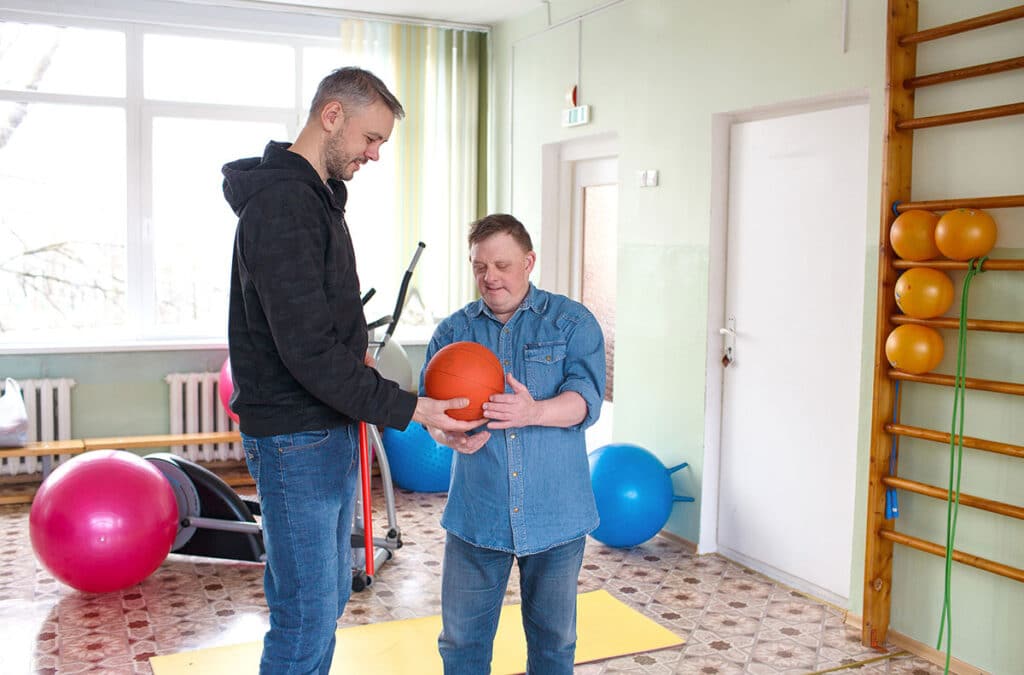
Supporting an individual with special needs can at times take extra care and funds. Here are some resources to assist financially in the short and long term. Parent Navigators can assist you in understanding which resources your family may qualify for… Connect with a Navigator!
